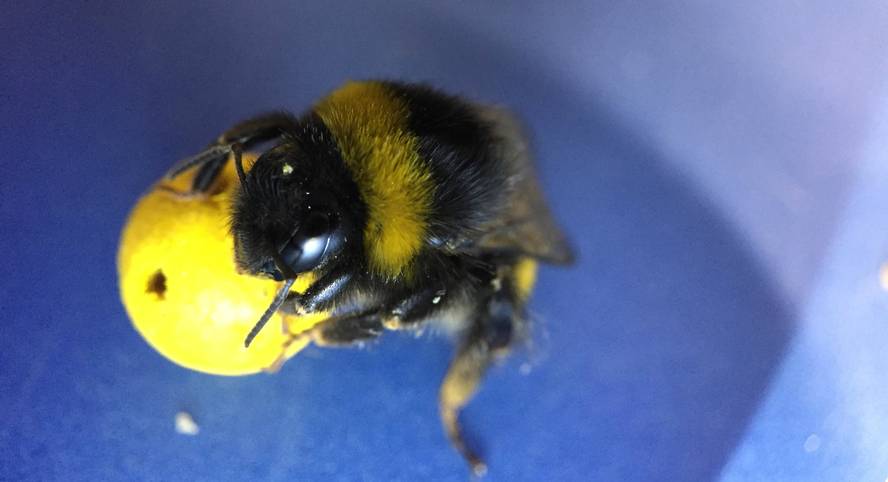Bees are able to learn to see
In view of how others do it, the apiquots are able to learn to use new tools. Researchers from the Queen Mary University of London have reached this conclusion. Through an experiment they have shown, like many mammals and some birds, that the apiquots are also able to see and learn. It has been released in the journal Science.
The Erlastes learned that if they wore a ball placed on the edge of a platform at the center of it they would get a sweet prize. To do this, they were taught first with plastic bees, what they should do to collect the prize. All bees learned what to do. Subsequently, three other tests were performed with other bees. In the first they saw how trained bees moved the ball. In the second, balls were moved with magnets, with bees watching. And in the third, the ball was in the middle from the beginning. In addition, in the first two tests three balls were placed at different distances from the center, but the trained bees (because the other two were glued in the trainings) or the magnets moved it was further away.
After the three tests, they saw that the bees of the first group were more successful than those of the second and learned faster. And the second group was more successful than the third. That is, seeing the ball in motion was enough to learn the action, but seeing how other bees do they learned faster. In addition, they have seen observer bees go directly to the nearest ball, the researchers have come to the conclusion that they not only copy what they saw, but try to improve using a shorter path.






